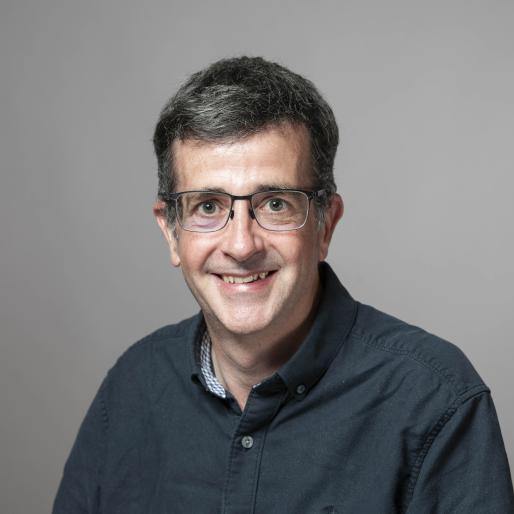The big picture: using wildflower strips for pest control
Rothamsted is partnering with the UK-CGIAR Centre and others on a new project that will focus on the climate adaptation preparedness of agricultural systems in sub-Saharan Africa’s savannah regions.
A Climate-Smart Agronomy Vision for Adapted Crops and Soils (AgVACS) brings together international expertise from across CGIAR, the UK, Ghana and Nigeria to help address farming issues in one of the regions most likely to be acutely affected by climate change.
Smallholdings represent around 80% of the world’s farms and are concentrated in low- and middle-income countries, supplying around half of the world’s food. Smallholder farmers typically experience low and variable yields and profitability due to climate variability, low resource use and efficiencies, and declining soil health. These problems are particularly acute across sub-Saharan Africa, where farmers are contending with increasingly frequent episodes of extreme drought, flooding, pest and disease infestations, and poor soil fertility. Underutilized legume crops, as identified by the Vision for Adapted Crops and Soils (commonly known as VACS) initiative, could enable greater adaptation to the climate related-challenges smallholder farmers face.
Christine Kreye, the project lead from IITA said, “The project team has balanced representation from CGIAR, UK, and the local partners. What’s exciting is the expertise, knowledge, and skillsets each of the partners bring to the consortium.”
The research teams will investigate the role of climate-smart agronomic practices and cropping systems within the scope of VACS, aligning with CGIAR’s new Sustainable Farming Science Program. The research will prioritise studying crops identified by the VACS initiative, including Bambara groundnut and pigeon pea. The AgVACS team will be working in northern regions of Ghana and Nigeria, where cereal-legume cropping systems are dominant.
The work will help to strengthen science links between UK and West Africa
The research could play a vital role in strengthening the climate resilience of smallholder farming systems in Ghana and Nigeria and improving the wellbeing of poor and vulnerable populations. In the long run, we hope AgVACS will provide a model for wider VACS research.
Professor Martin Broadley, Science Director at Rothamsted said, “We are delighted to work with colleagues in Ghana and Nigeria to deliver improvements to cropping systems. This will make them more resilient to extreme climates, whilst maintaining high levels of productivity and nutritional quality, and improving soil health. The work will help to strengthen science links between UK and West Africa and one of the key UK contributions is in the area of optimising the use of spatial information, from new and legacy data sources, to support our partners develop decision making advice which they provide to farmers.”
Partners include the International Institute of Tropical Agriculture (IITA), Alliance of Bioversity International and CIAT (ABC), The Council for Scientific and Industrial Research–Savanna Agricultural Research Institute (CSIR–SARI) in Ghana, and Bayero University Kano (BUK) in Nigeria plus the Universities of Nottingham and Warwick in the UK.
The UK-CGIAR Centre is funded by UK International Development from the UK government and the Biotechnology and Biological Sciences Research Council (BBSRC).
(Image: Shutterstock)

Science Director Sustainable Soils and Crops
Rothamsted Research is the longest-running agricultural research institute in the world. We work from gene to field with a proud history of ground-breaking
discoveries in areas as diverse as crop management, statistical interpretation and soil health. Our founders, in 1843, were the pioneers of modern
agriculture, and we are known for our imaginative science and our collaborative approach to developing innovative farm practice.
Through independent research, we make significant contributions to improving agri-food systems in the UK and internationally, with
economic impact estimated to exceed £3 bn in annual contribution to the UK economy. Our strength lies in our systems approach, which combines strategic research,
interdisciplinary teams and multiple partnerships.
Rothamsted is home to three unique National Bioscience Research Infrastructures which are open to researchers from all over the world:
The Long-Term Experiments,
Rothamsted Insect Survey and the
North Wyke Farm Platform.
We are strategically funded by the Biotechnology and Biological Sciences Research Council (BBSRC), with additional support from other national and
international funding streams, and from industry. We are also supported by the Lawes Agricultural Trust (LAT).
The Biotechnology and Biological Sciences Research Council is part of UK Research and Innovation, a non-departmental public body funded by a grant-in-aid
from the UK government.
BBSRC invests to push back the frontiers of biology and deliver a healthy, prosperous and sustainable future. Through our investments, we build and support a vibrant,
dynamic and inclusive community which delivers ground-breaking discoveries and develops bio-based solutions that contribute to tackling global challenges,
such as sustainable food production, climate change, and healthy ageing.
As part of UK Research and Innovation (UKRI), we not only play a pivotal role in fostering connections that enable the UK’s world-class research and innovation system
to flourish – we also have a responsibility to enable the creation of a research culture that is diverse, resilient, and engaged.
BBSRC proudly forges interdisciplinary collaborations where excellent bioscience has a fundamental role. We pioneer approaches that enhance the equality, diversity,
and inclusion of talent by investing in people, infrastructure, technologies, and partnerships on a global scale.
The Lawes Agricultural Trust, established in 1889 by Sir John Bennet Lawes, supports Rothamsted Research’s national and international agricultural science through the provision of land, facilities and funding. LAT, a charitable trust, owns the estates at Harpenden and Broom's Barn, including many of the buildings used by Rothamsted Research. LAT provides an annual research grant to the Director, accommodation for nearly 200 people, and support for fellowships for young scientists from developing countries. LAT also makes capital grants to help modernise facilities at Rothamsted, or invests in new buildings.